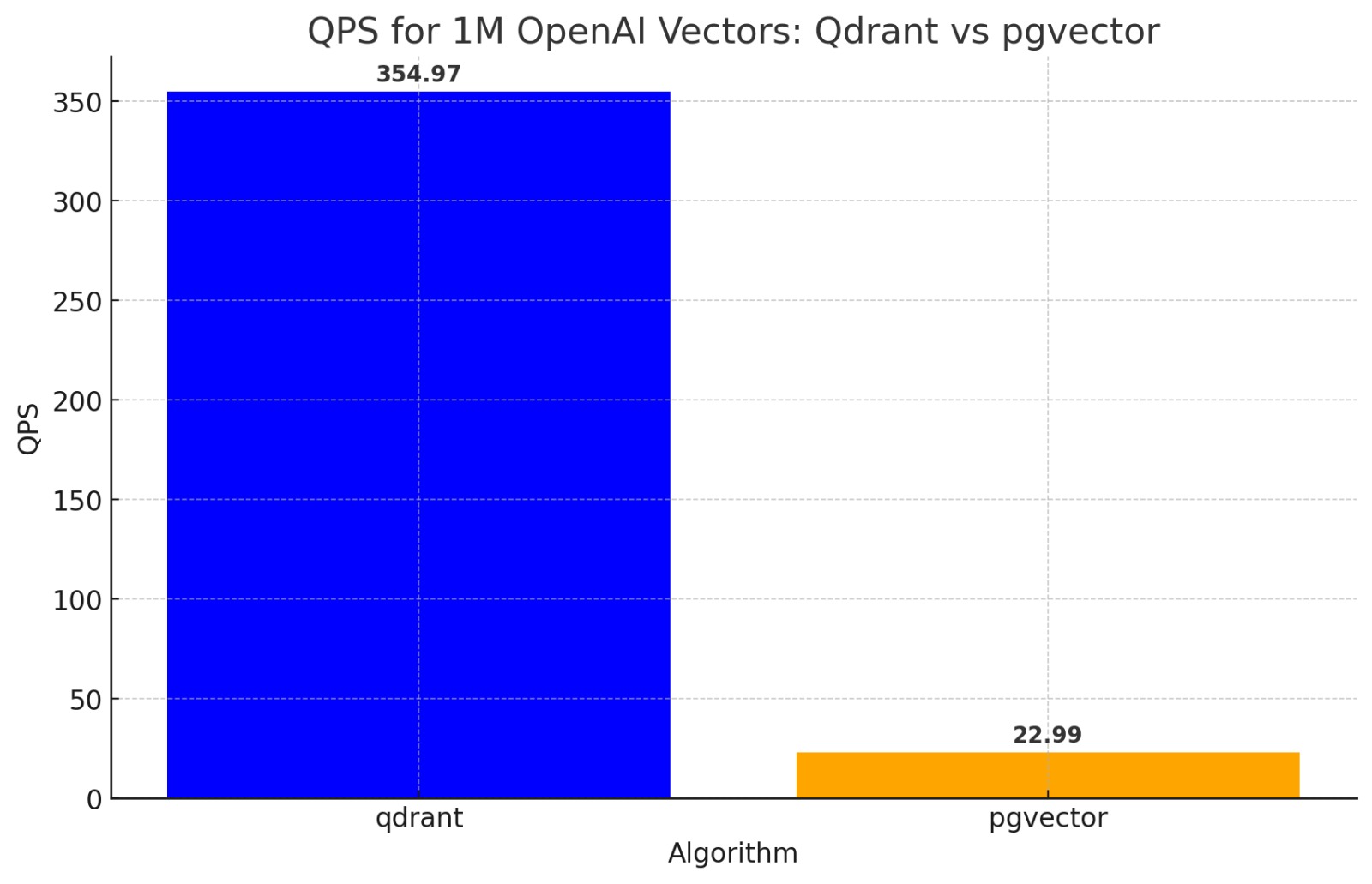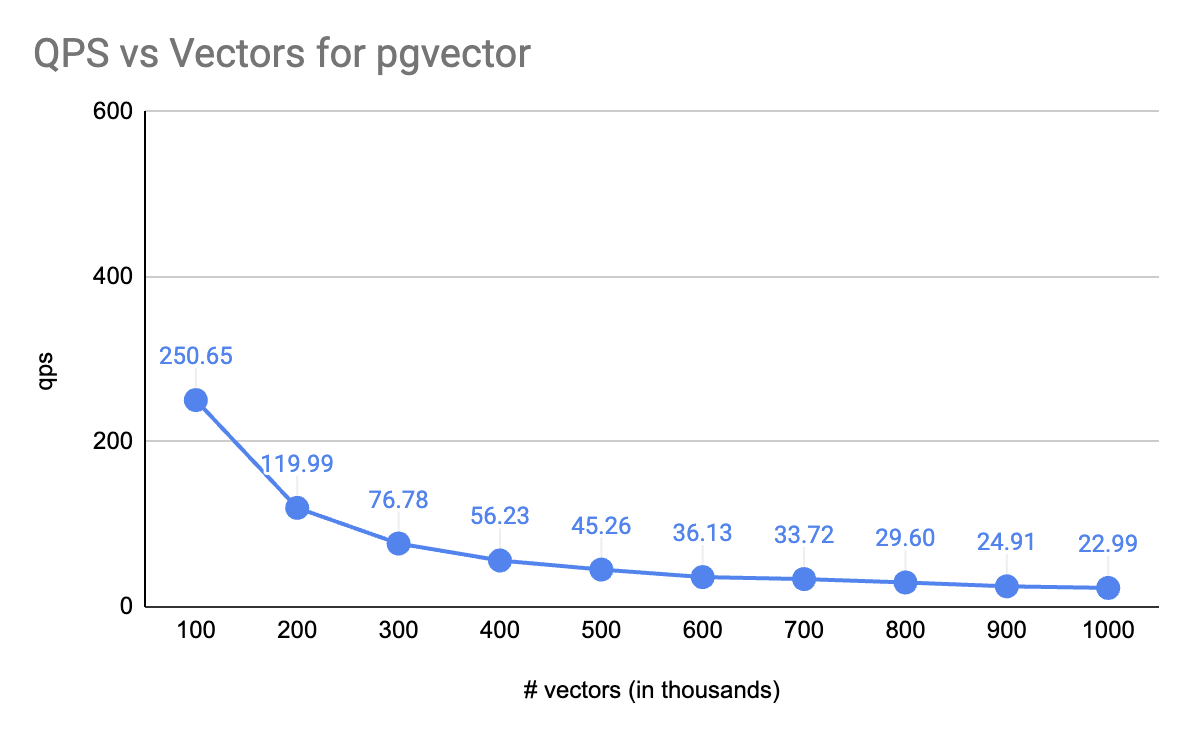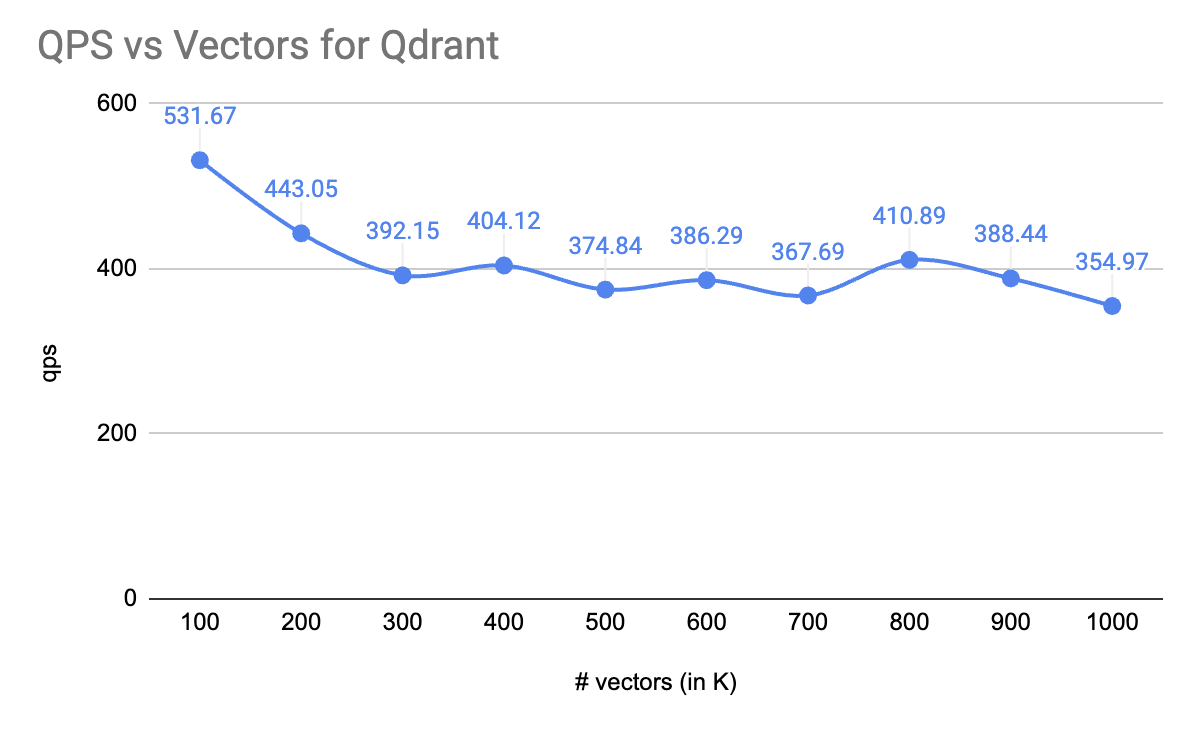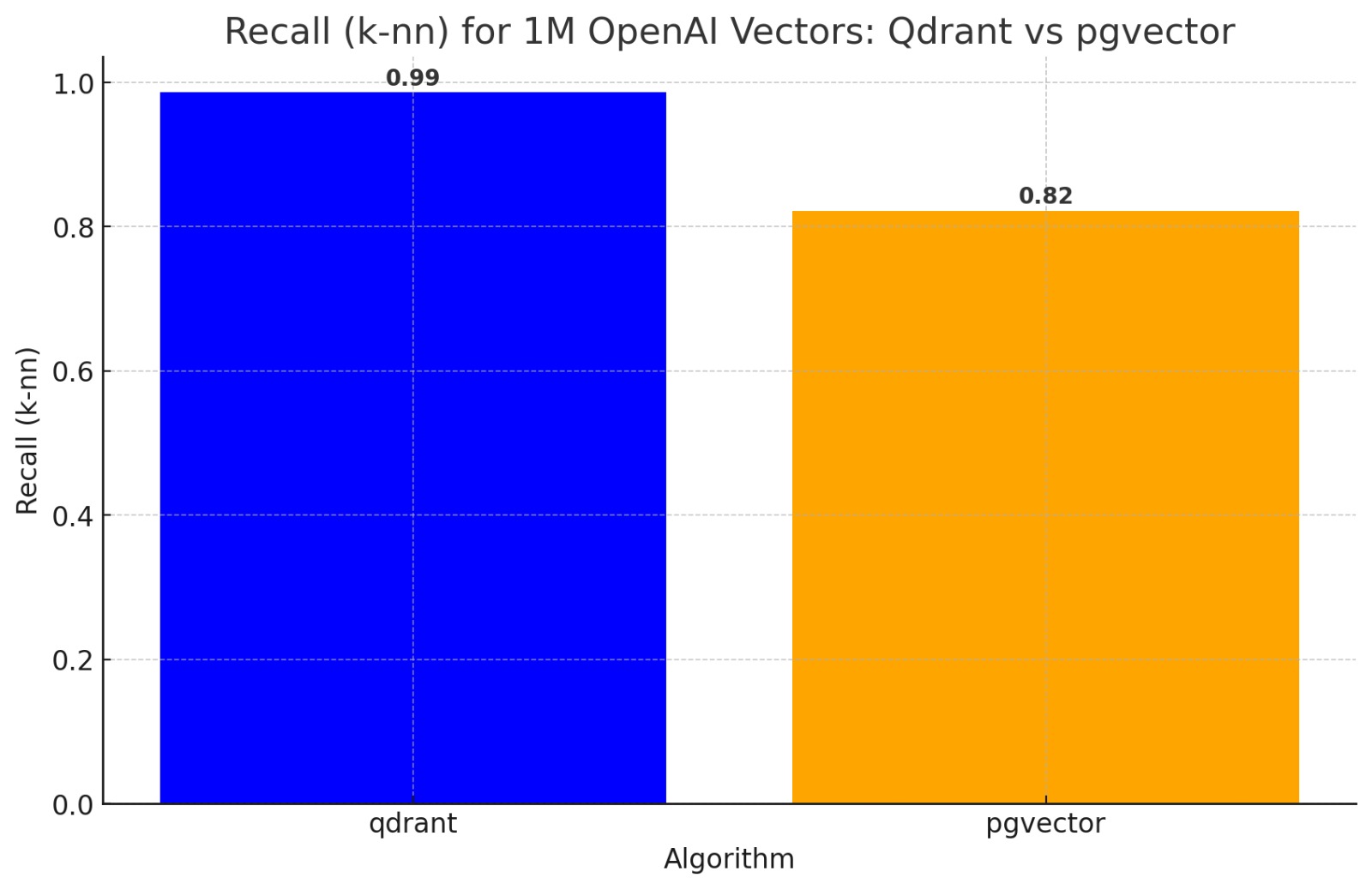pgvector vs Qdrant- Results from the 1M OpenAI Benchmark
You may have considered using PostgreSQL's pgvector extension for vector similarity search. There are good reasons why this option is strictly inferior to dedicated vector search engines, such as Qdrant.
We ran both benchmarks using the ann-benchmarks solely dedicated to processing vector data. The difference in performance is quite staggering.
Query Speed¶

Final results show that pgvector lags behind Qdrant by a factor of 15 when it comes to throughput.
That is a 1500% deficit in speed. However, we shouldn't only consider speed as the main metric when evaluating a database. In terms of accuracy, pgvector delivers way fewer relevant results than Qdrant.
Workload¶
Interestingly, these disparities start to surface with as few as 100,000 chunked documents.

As an ardent supporter of PostgreSQL, it is disheartening to witness that pgvector doesn't just commence at under half the QPS at 100,000 vectors, when compared to Qdrant - it plunges precipitously beyond that.

Correctness¶
One might try to rationalize this by assuming that Postgres is slower, but more accurate? Data reveals that pgvector is not just slower, but also ~18% less accurate!

We measure this using the same methodology as the ann-benchmarks codebase: k-NN bruteforce as ground truth.
Latency¶
Here, Qdrant holds its own. The worst p95 latency for Qdrant is 2.85s, a stark contrast to pgvector, whose best p95 latency is a full 4.02s. Even more astonishing, pgvector's worst p95 latency skyrockets to an unbelievable 45.46s.
Benchmark Specs¶
The machine we used to run the benchmark: t3.2xlarge, 8 vCPU, 32GB RAM
For data enthusiasts among us, this Google Sheet details all the numbers for a more in-depth analysis: Google Sheet
Configuration¶
We use the default configuration for Qdrant and much better parameters for pgvector:
The pgvector recommendation which'd be possibly worse performance-wise:
There is much more to be tested. We will continue to explore the configuration space for both platforms and update this.
Conversations with the Community¶
Paul Copplestone (CEO, Supabase) has also shared his thoughts on the matter:
Yup: 1. Wait 6 months, a lot of development is happening on pgvector 2. Use hybrid search 3. Use filters on other indexed columns 4. Use partitions
And as always, take benchmarks with a grain of salt, they are never as clear-cut as they seem. We’ll publish benchmarks soon too using the latest version of pgvector
Adding my notes here:
pgvector uses full-scan when there are filters or hybrid search. This is a very slow algorithm when using 1536 embeddings. It's O(n) where n -> number of vectors matching the filter.
When there are no filters, pgvector uses IVF. This is a slower algorithm when using 1536 embeddings, and it’s less accurate than Qdrant's HNSW.
Aside: Feel free to check out my Twitter Intro to IVFPQ.
@jobergum, creator of Vespa.ai (a vector search engine) also shared his thoughts:
pgvectoris an extension which default will just search the closest cluster to the query vector which for most high dimensional embedding models will return just 2-3 out of 10 real neighbors.
This is a very important point. pgvector is not a vector search engine. It's a vector extension for PostgreSQL, and that involves some tradeoffs which are sometimes not obvious.
There is a US$2000 bounty for anyone who can raise a PR to make the pgvector extension use HNSW instead of IVF.
Acknowledgements¶
The engineering and dataset were both done by Kumar Shivendu. Most of my contribution was in the form of spotting the bottlenecks, feedback and sponsorship.
These surprising revelations are courtesy of Erik Bernhardsson's ann-benchmarks code.

